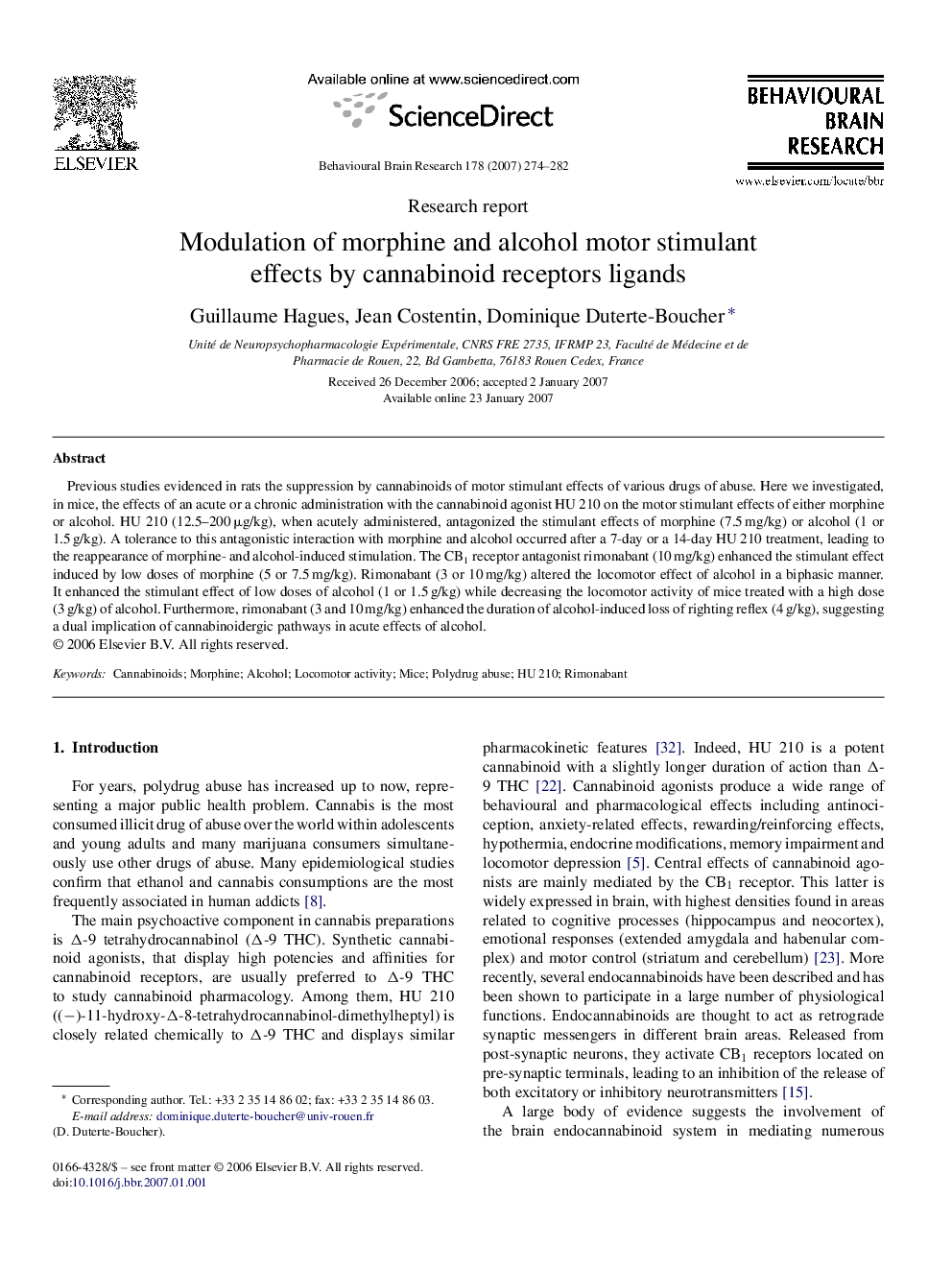| Article ID | Journal | Published Year | Pages | File Type |
|---|---|---|---|---|
| 4315700 | Behavioural Brain Research | 2007 | 9 Pages |
Abstract
Previous studies evidenced in rats the suppression by cannabinoids of motor stimulant effects of various drugs of abuse. Here we investigated, in mice, the effects of an acute or a chronic administration with the cannabinoid agonist HU 210 on the motor stimulant effects of either morphine or alcohol. HU 210 (12.5-200 μg/kg), when acutely administered, antagonized the stimulant effects of morphine (7.5 mg/kg) or alcohol (1 or 1.5 g/kg). A tolerance to this antagonistic interaction with morphine and alcohol occurred after a 7-day or a 14-day HU 210 treatment, leading to the reappearance of morphine- and alcohol-induced stimulation. The CB1 receptor antagonist rimonabant (10 mg/kg) enhanced the stimulant effect induced by low doses of morphine (5 or 7.5 mg/kg). Rimonabant (3 or 10 mg/kg) altered the locomotor effect of alcohol in a biphasic manner. It enhanced the stimulant effect of low doses of alcohol (1 or 1.5 g/kg) while decreasing the locomotor activity of mice treated with a high dose (3 g/kg) of alcohol. Furthermore, rimonabant (3 and 10 mg/kg) enhanced the duration of alcohol-induced loss of righting reflex (4 g/kg), suggesting a dual implication of cannabinoidergic pathways in acute effects of alcohol.
Related Topics
Life Sciences
Neuroscience
Behavioral Neuroscience
Authors
Guillaume Hagues, Jean Costentin, Dominique Duterte-Boucher,
